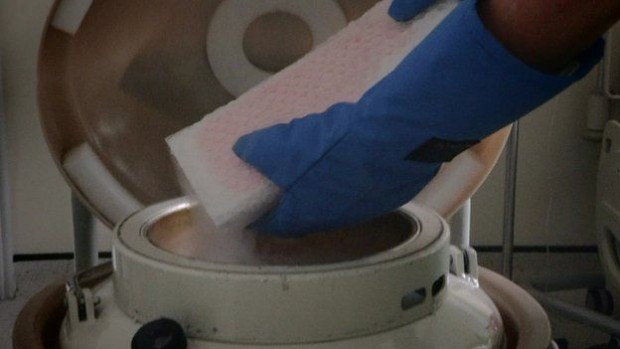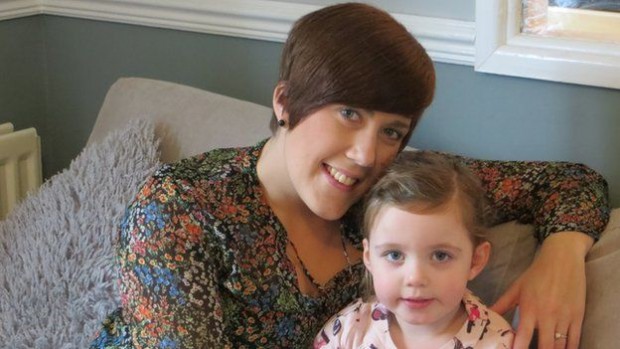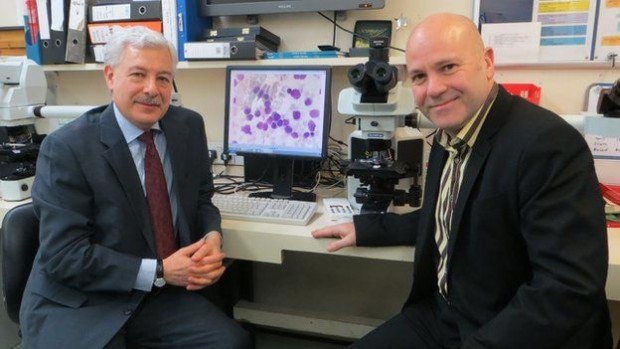Stunning cancer treatment results for MS patients

BBC
UK doctors in Sheffield say patients with multiple sclerosis (MS) are showing “remarkable” improvements after receiving a treatment usually used for cancer.
About 20 patients have received bone marrow transplants using their own stem cells. Some patients who were paralysed have been able to walk again.
Prof Basil Sharrack, of Sheffield’s Royal Hallamshire Hospital, said: “To have a treatment which can potentially reverse disability is really a major achievement.”
Around 100,000 people in the UK have MS, an incurable neurological condition. Most patients are diagnosed in their 20s and 30s.
The disease causes the immune system to attack the lining of nerves in the brain and spinal cord.
Immune system ‘rebooted’
The treatment – known as an autologous haematopoietic stem cell transplant (HSCT) – aims to destroy the faulty immune system using chemotherapy.
It is then rebuilt with stem cells harvested from the patient’s own blood. These cells are at such an early stage they’ve not developed the flaws that trigger MS.
Prof John Snowden, consultant haematologist at Royal Hallamshire Hospital, said: “The immune system is being reset or rebooted back to a time point before it caused MS.”
About 20 MS patients have been treated in Sheffield in the past three years. Prof Snowden added: “It’s clear we have made a big impact on patients’ lives, which is gratifying.”
Multiple sclerosis
In MS the protective layer surrounding nerve fibres in the brain and spinal cord – known as myelin – becomes damaged. The immune system mistakenly attacks the myelin, causing scarring or sclerosis.
The damaged myelin disrupts the nerve signals – rather like the short circuit caused by a frayed electrical cable. If the process of inflammation and scarring is not treated then eventually the condition can cause permanent neurodegeneration.
The BBC’s Panorama programme was given exclusive access to several patients who have undergone the stem cell transplant.
Steven Storey was diagnosed with MS in 2013 and, within a year, went from being an able-bodied athlete to needing a wheelchair and losing sensation in much of his body.
He said: “I went from running marathons to needing 24-hour acute care. At one point I couldn’t even hold a spoon and feed myself.”
Within a few days of the transplant he was able to move his toes, and after four months he could stand unaided.
Steven still needs a wheelchair but is astounded at his progress: “It’s been incredible. I was in a dire place, but now I can swim and cycle and I am determined to walk.”

Holly Drewry was just 21 when she was diagnosed with MS and her condition deteriorated after she gave birth to her daughter Isla.
She said “Within a couple of months I got worse and worse. I couldn’t dress or wash myself; I didn’t even have the strength to carry my daughter.”
Holly needed a wheelchair before her transplant, but after the treatment she walked out of hospital.
She said: “It’s been a miracle. I got my life and my independence back and the future is bright again in terms of being a mum and doing everything with Isla.”
Two years on she has suffered no relapses and there is no evidence of active disease on her scans.
Doctors describe her MS as dormant, but there is hope that the transplant might be a permanent fix.

Cost-effective
The Royal Hallamshire Hospital – together with hospitals in the United States, Sweden and Brazil – is part of an international trial, MIST, which is assessing the long-term benefits of the stem cell transplant.
All those on the trial have relapsing remitting MS, where patients experience attacks – or relapses – followed by periods of remission.
The treatment involves intensive chemotherapy, so patients are warned that there are side-effects such as nausea and hair loss.
Paul Kirkham, another MS patient, said he was glad to have had the transplant but added: “It does knock you. I’d rather have done 10 rounds with Mike Tyson.”
The transplant involves a one-off cost of around £30,000, which is comparable to the yearly cost of some MS treatments.
Because the procedure involves no new drugs and instead re-purposes an existing therapy using the patient’s own cells, there is little profit incentive for drug companies to get involved.
Prof Richard Burt, Northwestern University, Chicago carried out the first HSCT for MS as long ago as 1995 and is coordinating the international trial which began in 2006.
He said: “There has been resistance to this in the pharma and academic world. This is not a technology you can patent and we have achieved this without industry backing.”
A study published last year involving MS patients in Chicago showed significant reductions in neurological disability, and for some the improvements persisted for at least four years, although there was no comparative control group.
The outcome of the more detailed MIST trial – which will report in a couple of years – could determine whether the stem cell transplant becomes a standard NHS treatment for many MS patients.
Dr Emma Gray, head of clinical trials at UK’s MS Society , said: “Ongoing research suggests stem cell treatments such as HSCT could offer hope, and it’s clear that in the cases highlighted by Panorama they’ve had a life-changing impact.
“However, trials have found that while HSCT may be able to stabilise or improve disability in some people with MS it may not be effective for all types of the condition.”
Dr Gray said people should be aware it was an “aggressive treatment that comes with significant risks”, but called for more research into HSCT so there could be greater understanding of its safety and long term effectiveness.
How to submit an Op-Ed: Libyan Express accepts opinion articles on a wide range of topics. Submissions may be sent to oped@libyanexpress.com. Please include ‘Op-Ed’ in the subject line.
- Western Powers Welcome Libya’s Municipal Election Results - November 26, 2024
- Libya concludes presidency of MENWMDFZ - November 26, 2024
- LAIP seeks to reclaim major agricultural investment in Guinea - November 26, 2024


